- Home
- Charles L. Grant
Chariot - [Millennium Quartet 03] Page 4
Chariot - [Millennium Quartet 03] Read online
Page 4
Muriel didn’t answer. She dragged her favorite chair— a Boston rocker with padding she’d made herself—to the side of the window and sat so she could keep an eye on the bum and still look at her daughter.
“They’re holding hands,” she said in disgust.
“She likes him. Good Lord, Muriel, what’s wrong with that? He’s like, I don’t know, a father figure or something. Poor thing doesn’t have a father, you know. Mr. Falkirk is the substitute figure.”
Muriel snorted again. “Substitute figure? Where’d you get something stupid like that? One of those TV shows? He’s a bum, Lillian. And one of these days he’s going to hurt one of those girls. If you know what I mean.”
Lillian didn’t say anything. Her thin lips were pursed in almost silent humming, and she tapped her feet in time to whatever music it was.
Movement across the street caught Muriel’s attention. As she watched, Ricardo Hicaya stepped onto his porch, scratching his bare hairy belly as he looked up and down the street. The man was a bum. Even though he always wore a suit when he left the street in his not-so-new car, when he was here, he was a bum. Scratching himself, belching as loud as he could, making rude comments to every woman he saw. A bum. Good-looking in that kind of dark Spanish-Mexican-Inthan sort of way, kind of skinny with muscles like rope, except for that left hand that looked like a bird’s claw, but he was still a bum.
“No,” Lillian said with a laugh in her voice, “he’s not.”
Muriel blinked. “You reading my mind now?”
“I don’t have to. There isn’t a man on this street who isn’t a bum to you.”
“You live on this street, you are a bum.”
“Which makes us . .. what?”
Muriel couldn’t keep her lips from twitching. “Bumettes, my dear Mrs. Tarque. That makes us bumettes.”
Lillian laughed so hard the crutches slipped to the floor, and that made her laugh louder, harder, until the tears came, quickly followed by spasms of hiccups. Muriel only chuckled, about as close to a full laugh as she ever got these days.
What a pair, she thought; what a pair.
Twenty-six-year-old Lillian, thin as a European model, face like an angel, movie star hair bright as fire, walking with crutches because they had to replace her right knee after she’d fallen from the horse, the other leg useless now, they had to fuse it stiff; and Muriel, a year shy of twice her age, who had stopped calling herself big-boned a long time ago. Pleasantly plump was a fond memory. Reasonably heavy was the order of description these days. Nowhere near obese, but large enough to make walking hard, and to keep the men away. Most of them, anyway. Fat, but not rolling. No folds, thank God, no sagging tires around her waist and thighs, and the fat under her arms didn’t swing when she moved them.
Full-bodied.
That’s what that bum, Ricardo, had called her once, at someone’s party a while back.
As much as she hated to admit it, she kind of liked that. Like a good wine. What did they call it. . . robust? Something. It didn’t matter. She still liked it.
Ricardo left his porch, punching his way awkwardly into a T-shirt, and sauntered up the street, whistling. Bad hand in his pocket. Once he was out of sight, she checked on the little girl again, and scowled.
Still there.
With the bum.
“Muriel,” Lillian said wearily, “stop it.”
Muriel ignored her.
Coughed again, harder this time.
“That does it,” Lillian said. “Tomorrow you’re going in to get that flu shot.”
“No.”
The bum let go of the girl’s hand and walked around the side of his house. Getting that awful truck, she supposed. Getting ready to waste his money.
“Muriel—”
“I’ll get the shot,” she said, keeping her eye on the truck as it left the carport, “suppose I get sick? Some people do, you know, they have a reaction. Who’s going to take care of you, I want to know?”
“I’m not a cripple.”
“Don’t pout.” The truck pulled into the street, flashed its red brake lights, and drove away slowly. “You’re too old to pout.”
“Yes, Mother.”
The little girl waved once and ran for her house. Poor thing. Probably scared to death.
“Don’t call me that.”
Lillian laughed, a short and bitter bark. Then she retrieved her crutches, grunted to her feet, and thumped her way to the front door.
“And where do you think you’re going?”
“I’m going to ask Eula to turn the stereo down a little, then sit with her a while.” Lillian opened the door. “Have a drink, have a cigarette.” She looked at Muriel. “Maybe get converted.” She grinned then, and winked. “Besides, I’m dying for a cigarette. Unlike some people I could mention, Eula doesn’t care.”
Muriel said nothing. She didn’t offer to help, only watched as her bastard, widowed daughter clumped across the yard and out of sight.
The street was empty.
Muriel coughed and wondered if maybe she ought to get that shot. It couldn’t hurt.
* * * *
2
Ricardo had no idea where the hell he was going. He had planned to amble down toward the mailboxes at the end of the street, but once he’d seen the gambler’s truck, he changed his mind. It wasn’t that he didn’t like the guy, but. . . okay, so he didn’t like the guy. Doesn’t have a job, doesn’t work out and still looks like he could break a man in half, and keeps to himself like he’s some kind of special. Only time he mixes is when somebody else throws a party. It was crazy, this bad feeling, but he couldn’t help it. And for some reason, Eula’s music only made it worse.
So when he saw the truck, he didn’t think twice, he swung right instead of left and started walking. The trouble was, there wasn’t anything up this end of the street but a handful of empty houses the desert had already begun to wear down. Still, he didn’t want to meet Trey and make phony small talk, and he knew he was being watched, and he figured it would drive Muriel out of her mind, trying to figure out what he was up to now. So maybe he’d walk around for a few minutes, take in the early night air, listen to the wind, then get on home, and get dressed for work. Or maybe he’d get dressed, call in sick, and pay a visit to his across-the-street neighbor. That would drive her crazy, too, wondering what he was up to. So maybe he’d bring her some flowers. Just a couple. Drive her up the wall because she wouldn’t believe for a second he had any real interest in her at all. But she’d be tempted. He’d seen the way she looked at him when she thought he wasn’t looking, and even though she was a couple of years older, she was still a fine-looking lady. Her daughter wasn’t ugly, but she was much too skinny, especially after that terrible operation, and she didn’t seem to have any interest in men at all.
But Muriel... a lot of woman there to explore.
Flowers.
He grinned.
Flowers, and maybe an invitation to dinner at one of the hotels. Not the all-you-can-eat junk. A real restaurant. Force her to dress up a little.
That would drive her nuts.
He laughed aloud, told himself he was a terrible person, she didn’t deserve it, but she was so easy to taunt, to tease, to flatter. At the party last month, the going-away party for the family whose name he no longer remembered, he remembered calling her full-bodied when she’d said something stupid about being too fat to dance, and she had actually blushed. A woman her age, blushing.
He hadn’t forgotten it.
He thought about it every night.
That some women reacted to him that way wasn’t his fault. Not deliberately, anyway. Not all the time.
Because of his looks—the hair, the skin, the cast of his face—they assumed he was Spanish, or something more exotic, like an Inthan, an Apache. They also assumed he had a command of the language. Romantic. Hinting of romance. And while it was true he affected an accent sometimes, when he was reasonably sure he wouldn’t get caught, it was as false as his
airs. As his name. Richard was dull; Ricardo had panache. Only once, years ago, did guilt compel him to confess—to a woman long faded in memory—that his family had been in America since long before the Civil War, and that each succeeding generation had been adamant about diving headfirst into the melting pot.
The last one to speak Spanish with any fluency at all had been his great-grandmother, and what little Ricardo knew he had learned from the movies and one year in high school. .
One of his brothers had once claimed a dead Scot could roll his Rs better.
He hadn’t argued.
Nevertheless, the ladies still came in spite of the hand, and he still kept the pose, and still snuck off twice a month to learn how to tango. A great way, his teacher claimed, to guide a woman into bed.
Perhaps Muriel ... he laughed, shook his head at the fantasy, and walked on. Wrinkling his nose at a faint smell. A familiar smell. He squinted westward toward the mountains. No clouds, but something was on its way. He hoped it wasn’t another sandstorm. The valley rarely had them, but this year, and last, there’d been something like eight or nine. Just like they were living in the middle of the Sahara.
Took him days to clean all the sand and grit out of the house.
His hair had looked like hell.
Rain, he prayed; just let it rain, okay?
When the houses finally stopped and the street stopped and the desert stretched into the dark toward nothing at all but more dark, he turned around, whispered a prayer of thanks that Eula had finally turned down that damn music of hers, he hated that stuff, and thought for a minute before nodding sharply.
Flowers.
Invitation to dinner.
If Muriel accepted, fine.
If she didn’t, which she probably wouldn’t, not the first time anyway, he’d try again tomorrow. And the next day. And the day after that.
She may not give in ever, but it would really drive her nuts.
* * * *
3
During the drive into town, Stephanie said, “Cable, don’t you think we should have told Trey about that man?”
“Nope.”
“Maybe he’s in trouble, you know? Trey, I mean. You know, with some criminal or something.”
“Not our business.”
“Well, I still think it was a mistake.”
“You worry too much. And the guy’s a creep.”
“What? What’s the matter with him?”
“Don’t like him. He looks at you funny.”
“Cable. Please. How many times—”
”Forget it, Steph. And forget that old man. Whatever Falkirk’s into, ain’t our business.”
“But we lied, Cable. If that guy finds out we really do know him, maybe—”
“Steph, you worry too much.”
“You don’t worry at all.”
“No sense in it. A waste of time.”
“I mean . . . like the Sickness, it—”
“Steph.”
“But—”
“It ain’t here, Steph. We don’t got it. We get it, we probably die. You don’t worry what you can’t do nothing about.”
“Well, we can do something about that man.”
“Steph.”
“What?”
“Shut up.”
* * * *
4
The most difficult thing about being a drunk, Roger discovered, was the awful stuff you had to drink to achieve that unchartered state of blessed oblivion. Liquor wasn’t so bad when it was tempered with other things. Orange juice, tomato juice, tabasco, pineapple juice, water, club soda, salt, pepper, celery stalks, other liquors—all of it was preferable to drinking straight from a bottle. But having no facility for mixing cocktails either popular or of his own concoction had left him with no choice but the bottle.
Being a drunk, for reasons he could not bring to mind at the moment, had seemed to be, evidently, a good idea at the time, whatever time that had been when he’d started being a drunk.
But then, so had accepting the position at the university.
He grunted a bitter laugh.
University. Las Vegas. A hell of a combination, or so he had once believed.
What he hadn’t counted on was the city beyond the Strip. Which had turned out to be about as mundane as a city could get without being buried in the Midwest. What he hadn’t counted on was how utterly, horrifically boring life was once the neon and the billboards and the constant music, the constant noise had eroded excitement’s edges to something less sharp than a butter knife.
What he hadn’t counted on was the reaction:
“You work at UNLV?”
“That’s right.”
“Say, what’s with the Running Rebels anyway? They let Wyoming whale the tar out of them again, it’s getting to be a bad habit.”
“I—”
“Never used to be that way, you know, nosir. Number One, that’s what we were. Number One. Nobody could touch us. Nobody.”
“Well—”
“Disgrace, that’s what it is. A goddamn disgrace. What kind of school you got there anyway, letting them slip like that?”
Basketball was not his sport. As far as he was concerned, it shouldn’t be anyone’s sport. It had nothing to do with the fact that he was slightly shorter than average and therefore completely dwarfed by any third-string freshman; it had everything to do with the fact that running-and-dunking for however long it took a clutch of ungainly young giants to run-and-dunk, all night long, was ... boring.
Yet, as a faculty member he was expected to be a basketball expert, a basketball fanatic, a rabid follower of the, for crying out loud, Running Rebels, give me a break, I need another drink.
What he hadn’t counted on was living in a place like this, a has-been development soon to be yanked out from under him, populated by people who didn’t seem to want to read, didn’t seem to want to think beyond how to survive from one dismal paycheck to the next, didn’t seem to care that the world was falling apart around their ears.
They lived their lives, moved in, moved out, listened to music loud enough to deafen him, and didn’t have the vaguest idea what a decent, intelligent conversation was like.
They didn’t care about the world outside what Trey once called the dragon’s valley; they didn’t care, perhaps didn’t even think about, all the hospitals overflowing, the clinics filled to the gills, the . . . ah, the hell with it.
He took another drink.
But he couldn’t stop thinking.
Those who hadn’t fully recovered from last year’s famine had been the first to succumb, too weak to fight against the virus that should have been, had in fact been declared to have been eradicated years ago.
The rest had little more than a fifty-fifty chance of surviving the fever, the dehydration, the debilitation.
They called it the Sickness because no one wanted to say smallpox. No one wanted to admit that it was back, and it had changed.
Not that it mattered; they died anyway.
He sat on a lawn chair behind his house, facing the mountains he could no longer see. His only clothing a T-shirt and bright green boxer shorts. A bottle of De-wars. Gooseflesh breaking out along his arms and legs. His free hand made a futile pass through thick, shoulder-length wavy hair, then tugged at a neatly trimmed beard kept short to minimize the appearances of the occasional grey.
He took another drink, immediately spat it out, and said, “Christ, Rog, you’re pathetic.”
He then slid to the ground to his hands and knees, crawled ten feet away, and threw up.
Wept.
Threw up again.
Wept again.
Jesus, he couldn’t even make a good drunk.
He rocked clumsily back onto his heels, gulped for a breath that didn’t make his stomach queasy, and stood. Blinked heavily. Sideswiped the ground with one bare foot to cover the mess. The stench and movement made him gag, and he turned away hastily, clamped a hand to his stomach and gulped air again. Only when he was
positive nothing else would come up did he stagger toward the concrete back stoop and the kitchen door. As he passed the chair, he glared at the bottle, not at all tempted to take it with him.
One step up, and he paused, shuddering at a sudden chill that reached his skin from the inside, as if streaming from his marrow.
A second step up, and he paused, swallowing hard to bear the stench of himself. The imagined stench.

![[Oxrun Station] The Orchard Read online](http://i1.bookreadfree.com/i/03/17/oxrun_station_the_orchard_preview.jpg) [Oxrun Station] The Orchard
[Oxrun Station] The Orchard![Riders in the Sky - [Millennium Quartet 04] Read online](http://i1.bookreadfree.com/i/03/20/riders_in_the_sky_-_millennium_quartet_04_preview.jpg) Riders in the Sky - [Millennium Quartet 04]
Riders in the Sky - [Millennium Quartet 04]![Chariot - [Millennium Quartet 03] Read online](http://i1.bookreadfree.com/i/03/19/chariot_-_millennium_quartet_03_preview.jpg) Chariot - [Millennium Quartet 03]
Chariot - [Millennium Quartet 03]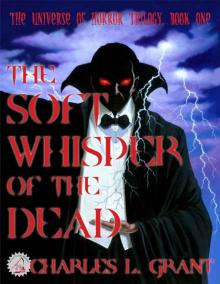 The Universe of Horror Volume 1: The Soft Whisper of the Dead (Neccon Classic Horror)
The Universe of Horror Volume 1: The Soft Whisper of the Dead (Neccon Classic Horror)![[Oxrun Station] Dialing The Wind Read online](http://i1.bookreadfree.com/i/03/19/oxrun_station_dialing_the_wind_preview.jpg) [Oxrun Station] Dialing The Wind
[Oxrun Station] Dialing The Wind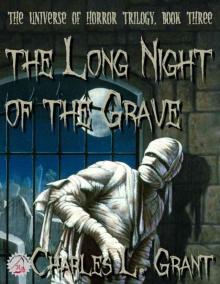 The Universe of Horror Volume 3: The Long Night of the Grave (Neccon Classic Horror)
The Universe of Horror Volume 3: The Long Night of the Grave (Neccon Classic Horror)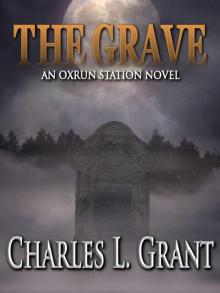 The Grave - An Oxrun Station Novel (Oxrun Station Novels)
The Grave - An Oxrun Station Novel (Oxrun Station Novels)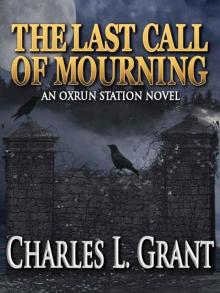 The Last Call of Mourning - An Oxrun Station Novel (Oxrun Station Novels)
The Last Call of Mourning - An Oxrun Station Novel (Oxrun Station Novels)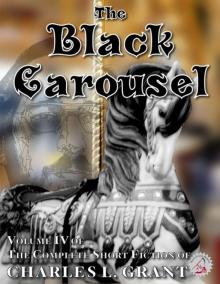 The Complete Short Fiction of Charles L. Grant, Volume IV: The Black Carousel
The Complete Short Fiction of Charles L. Grant, Volume IV: The Black Carousel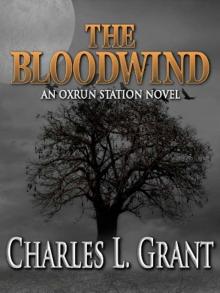 The Bloodwind - An Oxrun Station Novel (Oxrun Station Novels)
The Bloodwind - An Oxrun Station Novel (Oxrun Station Novels)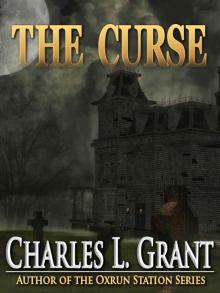 The Curse
The Curse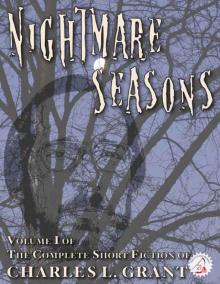 The Complete Short Fiction of Charles L. Grant Volume 1: Nightmare Seasons (Necon Classic Horror)
The Complete Short Fiction of Charles L. Grant Volume 1: Nightmare Seasons (Necon Classic Horror)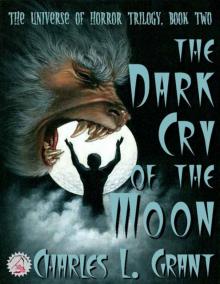 The Universe of Horror Volume 2: The Dark Cry of the Moon (Neccon Classic Horror)
The Universe of Horror Volume 2: The Dark Cry of the Moon (Neccon Classic Horror) Watcher: Based on the Apocalypse (World of Darkness : Werewolf)
Watcher: Based on the Apocalypse (World of Darkness : Werewolf)![[Oxrun Station] The Bloodwind Read online](http://i1.bookreadfree.com/i/03/25/oxrun_station_the_bloodwind_preview.jpg) [Oxrun Station] The Bloodwind
[Oxrun Station] The Bloodwind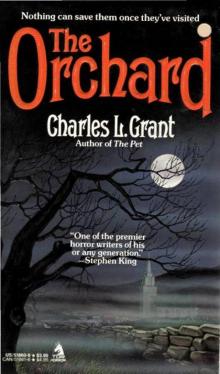 The Orchard
The Orchard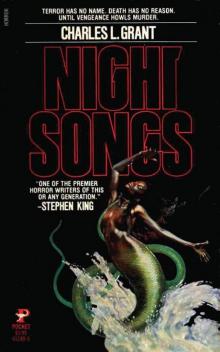 Night Songs
Night Songs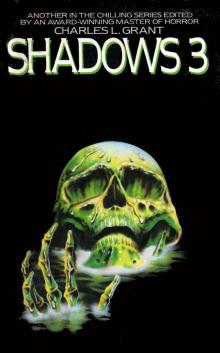 Shadows 3
Shadows 3![Symphony - [Millennium Quartet 01] Read online](http://i1.bookreadfree.com/i1/04/02/symphony_-_millennium_quartet_01_preview.jpg) Symphony - [Millennium Quartet 01]
Symphony - [Millennium Quartet 01] The Hour of the Oxrun Dead (Necon Classic Horror)
The Hour of the Oxrun Dead (Necon Classic Horror)![In the Mood - [Millennium Quartet 02] Read online](http://i1.bookreadfree.com/i1/03/31/in_the_mood_-_millennium_quartet_02_preview.jpg) In the Mood - [Millennium Quartet 02]
In the Mood - [Millennium Quartet 02]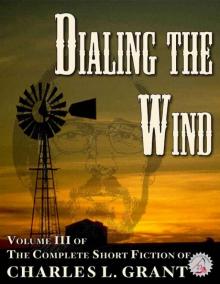 The Complete Short Fiction of Charles L. Grant Volume 3: Dialing the Wind (Neccon Classic Horror)
The Complete Short Fiction of Charles L. Grant Volume 3: Dialing the Wind (Neccon Classic Horror)![[Oxrun Station] The Last Call of Mourning Read online](http://i1.bookreadfree.com/i2/04/05/oxrun_station_the_last_call_of_mourning_preview.jpg) [Oxrun Station] The Last Call of Mourning
[Oxrun Station] The Last Call of Mourning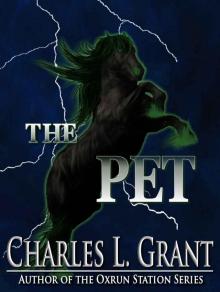 The Pet
The Pet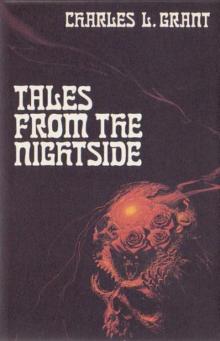 Tales from the Nightside
Tales from the Nightside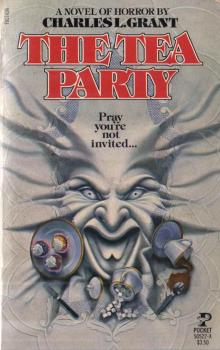 The Tea Party - A Novel of Horror
The Tea Party - A Novel of Horror The Complete Short Fiction of Charles L. Grant Volume 2: The Orchard (Necon Classic Horror)
The Complete Short Fiction of Charles L. Grant Volume 2: The Orchard (Necon Classic Horror) Whirlwind
Whirlwind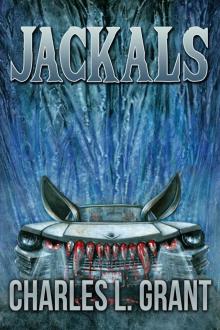 Jackals
Jackals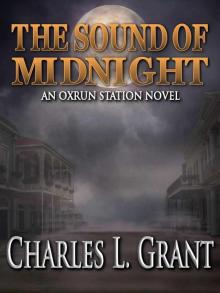 The Sound of Midnight - An Oxrun Station Novel
The Sound of Midnight - An Oxrun Station Novel